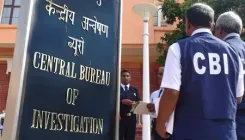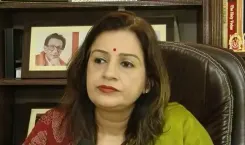Was Article 370 a Necessary Step, Yet Statehood Still Overdue?

Synopsis
Key Takeaways
- Article 370's removal was vital for Indian governance.
- Statehood for Jammu and Kashmir remains unfulfilled.
- Security concerns persist in the region.
- International trade issues are impacting India’s global standing.
- Political relationships may affect domestic policies.
Mumbai, Aug 5 (NationPress) As India marks the sixth anniversary of the revocation of Article 370 and the division of Jammu and Kashmir into two Union Territories, Shiv Sena-UBT leader and MLA Aditya Thackeray expressed that while the abolition of this constitutional clause was an essential and commendable action, the anticipated restoration of statehood continues to be unmet.
"The removal of Article 370 was essential, and we take pride in this action. However, the statehood that was supposed to follow has yet to be realized. The prevailing security scenario remains alarming—there is still no clear indication regarding the culprits behind the recent terrorist incidents in Pahalgam," stated Thackeray, who is the son of SS-UBT chief Uddhav Thackeray.
Thackeray's comments emerged as political figures from various parties assessed the ramifications of the decision made in 2019, which drastically changed the constitutional and administrative framework of Jammu and Kashmir.
In response to US President Donald Trump's recent remarks about imposing "significantly higher tariffs" on India due to its ongoing oil trade with Russia, Thackeray conveyed unease regarding the Indian government's lack of response.
"It is of utmost importance that no Union Minister has addressed this issue thus far. India seems to be in a vulnerable position globally. We must respond decisively. The Commerce Ministry needs to issue a public statement as this matter directly affects trade and consequently impacts everyday citizens," he added.
Mocking the camaraderie between Prime Minister Narendra Modi and Trump, he remarked: "Trump and PM Modi were once celebrated as best friends, but that so-called friendship appears to have vanished."
Reflecting on the fifth anniversary of the Ram Mandir Bhoomi Pujan, Thackeray commented, “Notable saints like Shankaracharya were excluded from the inauguration. The temple was not fully completed at that time—it became more of a political issue rather than a religious milestone. We had previously stated—for them, it's 'First temple, then government.'"







